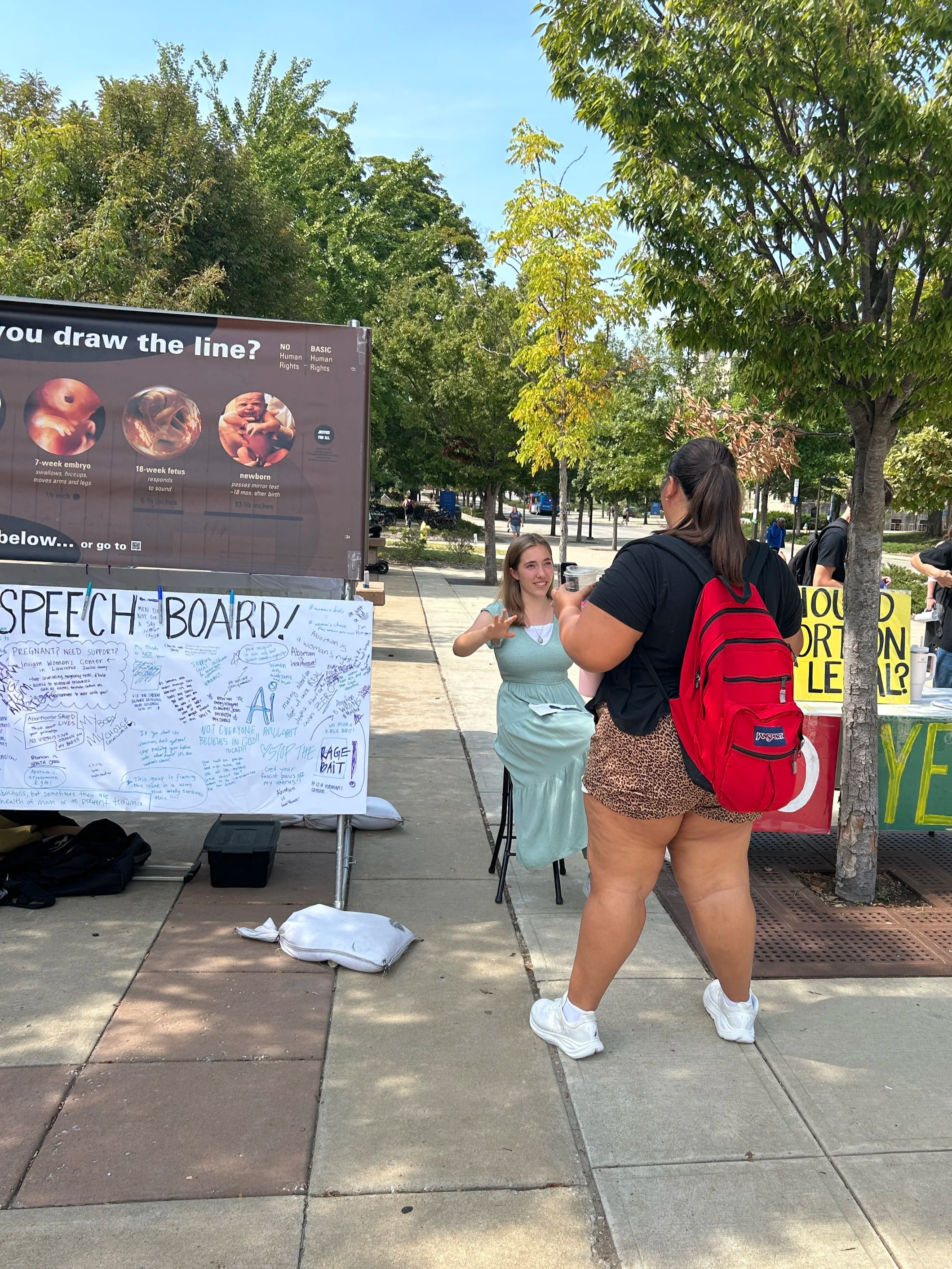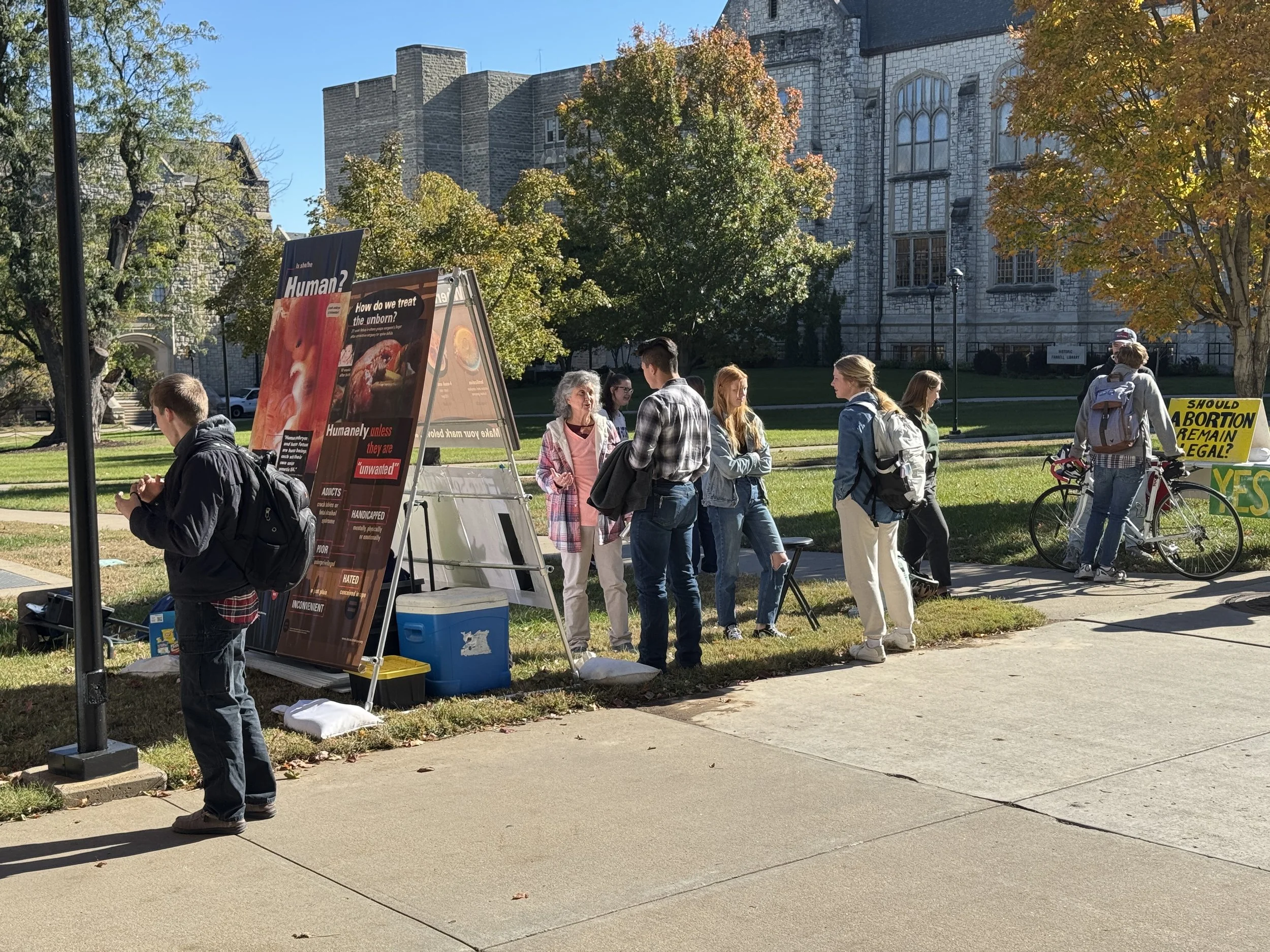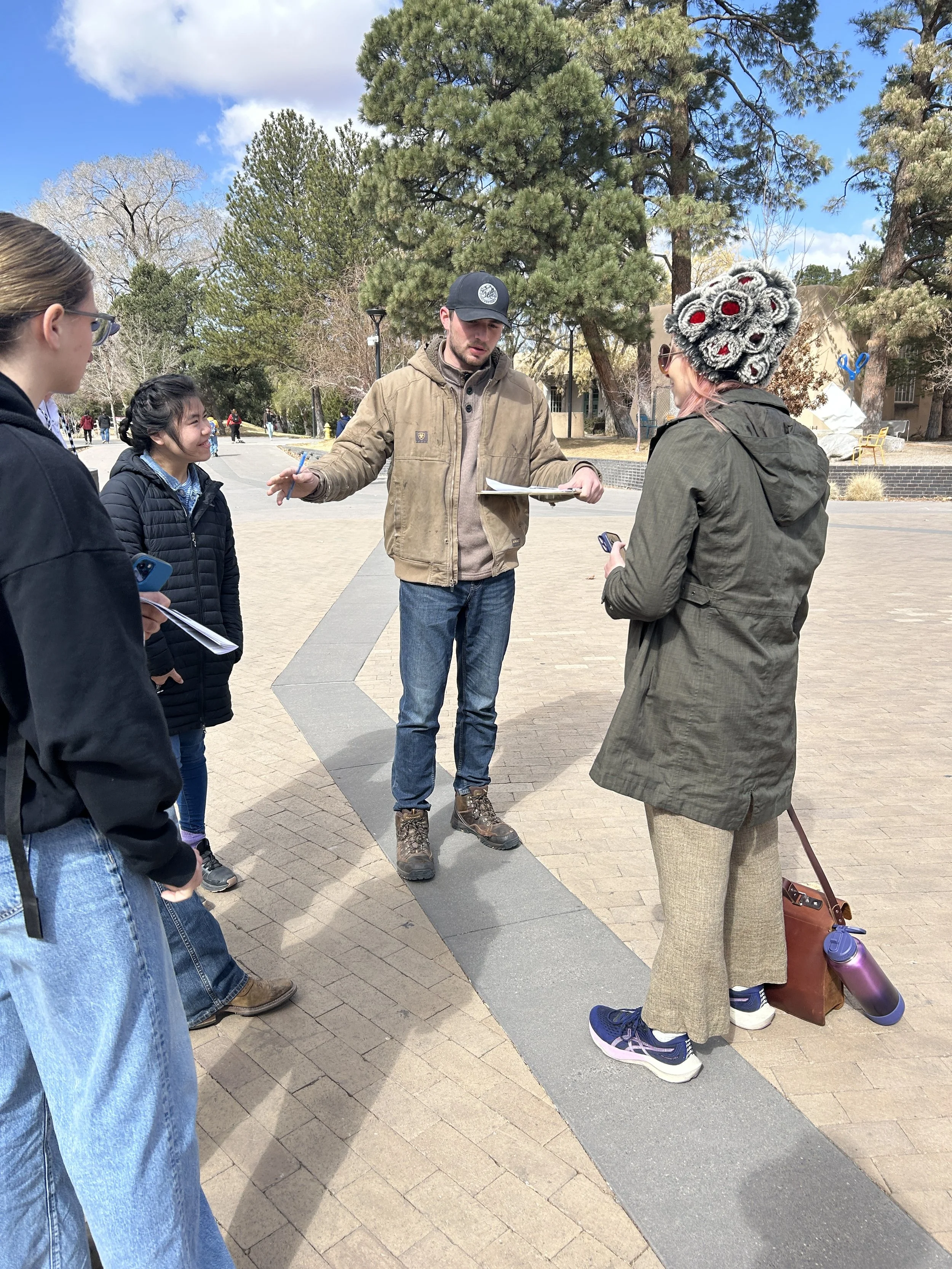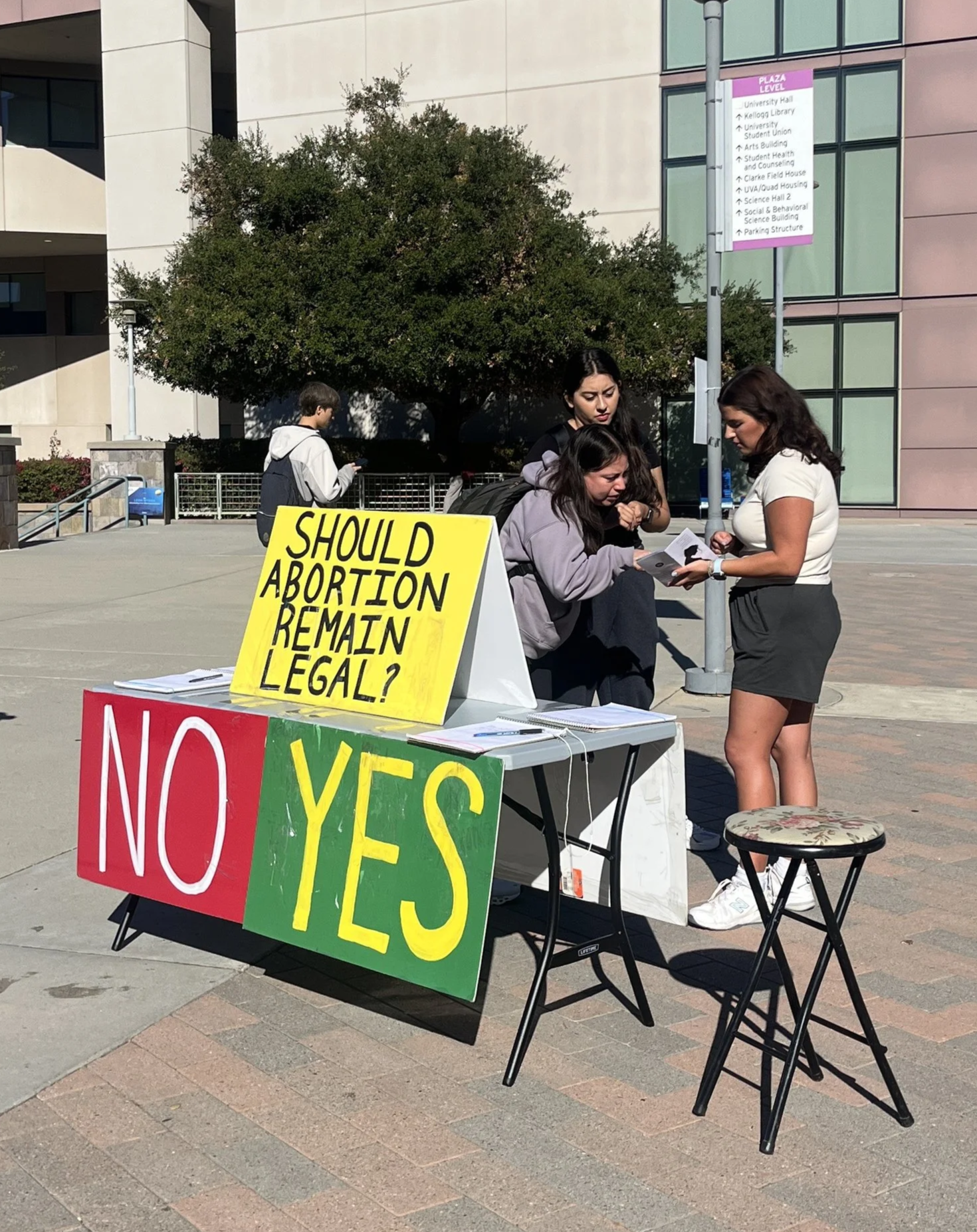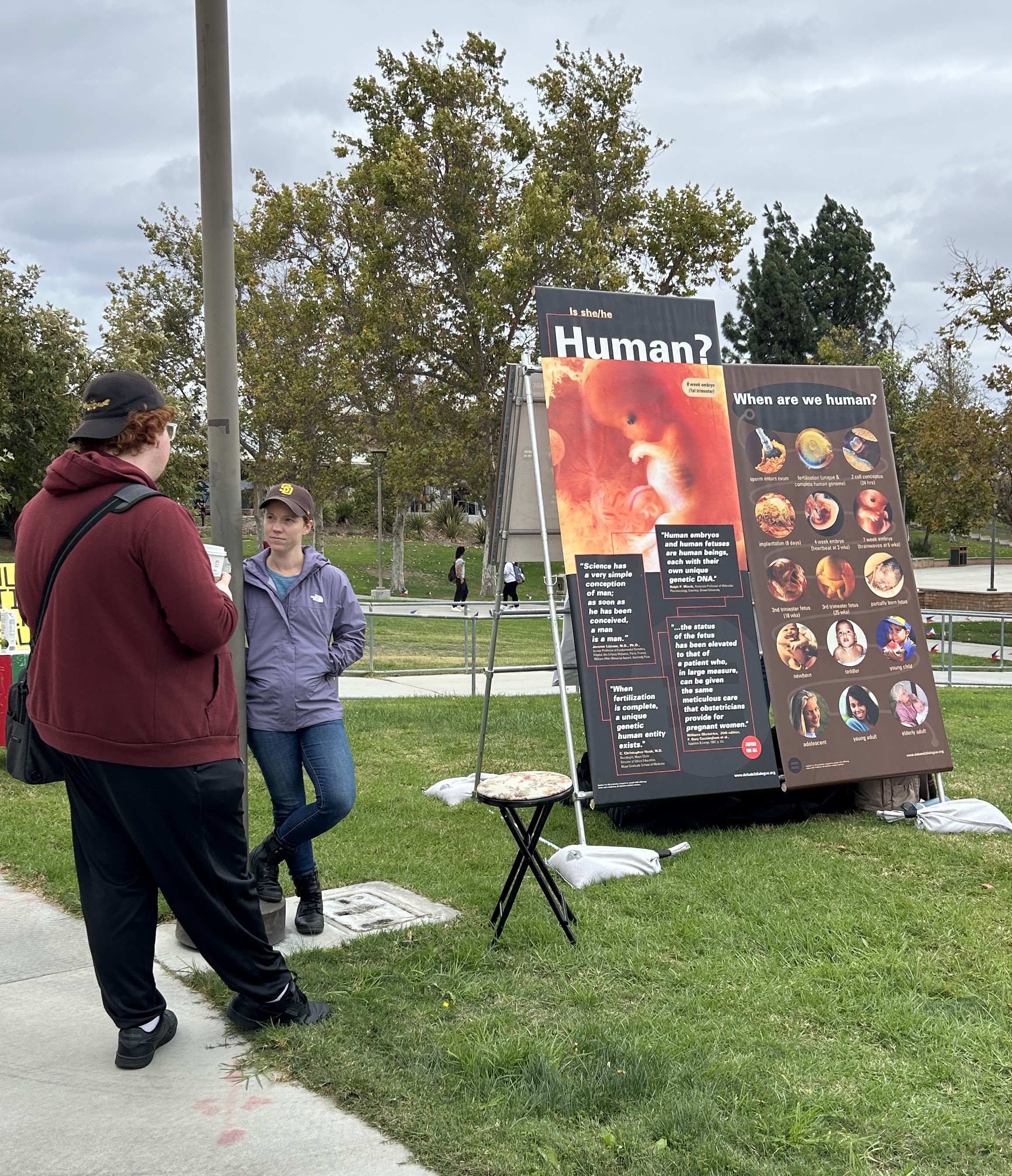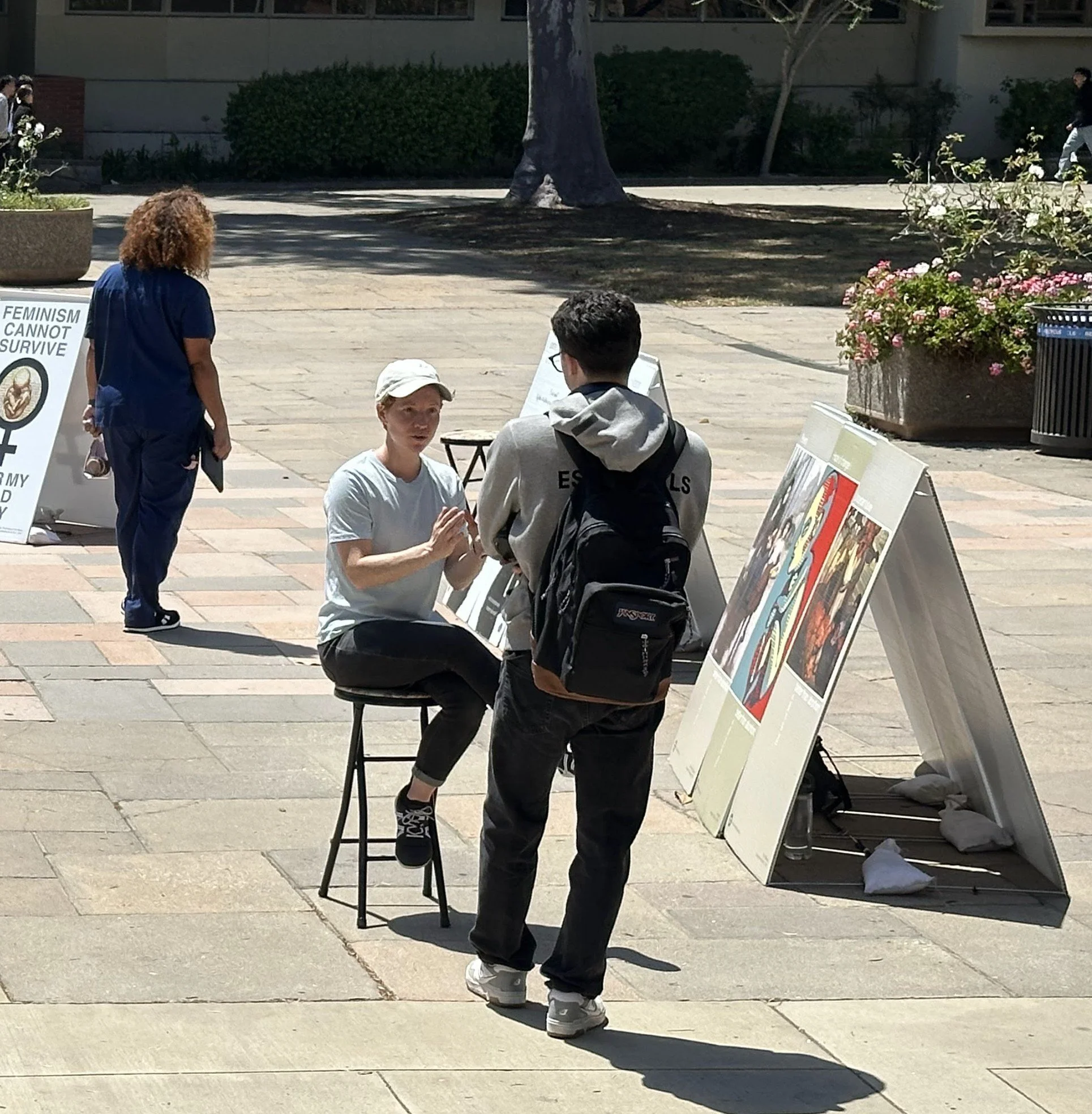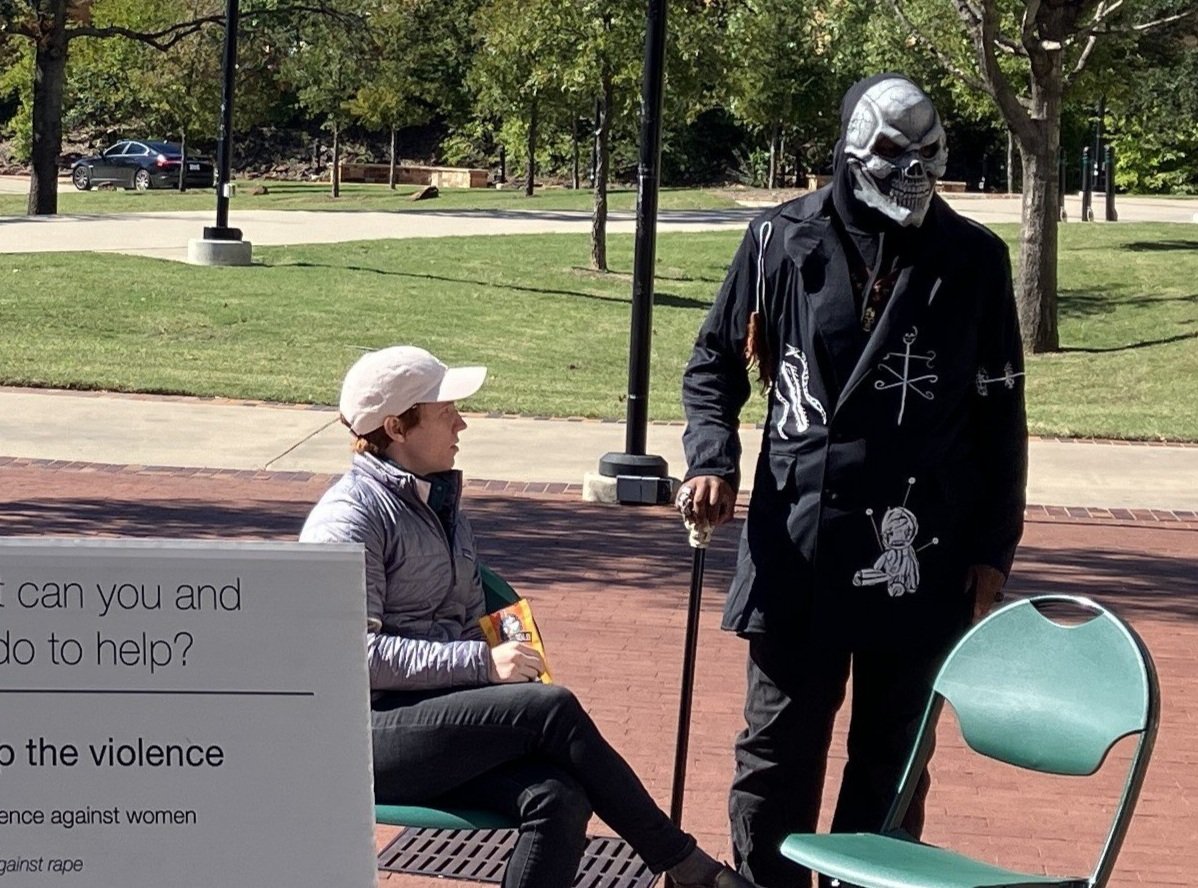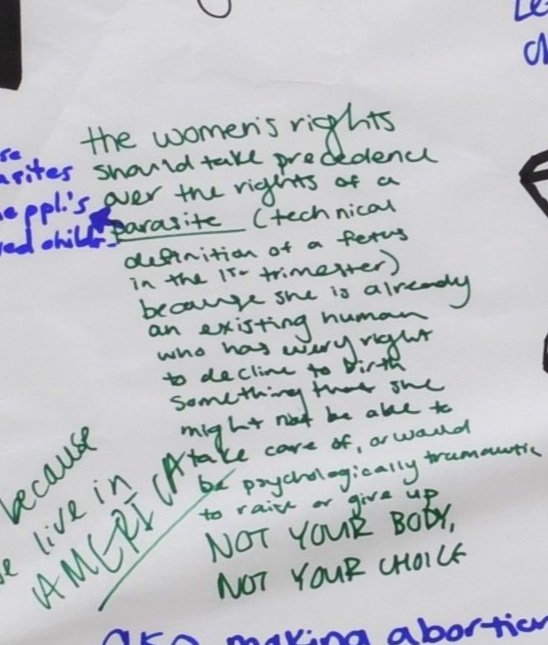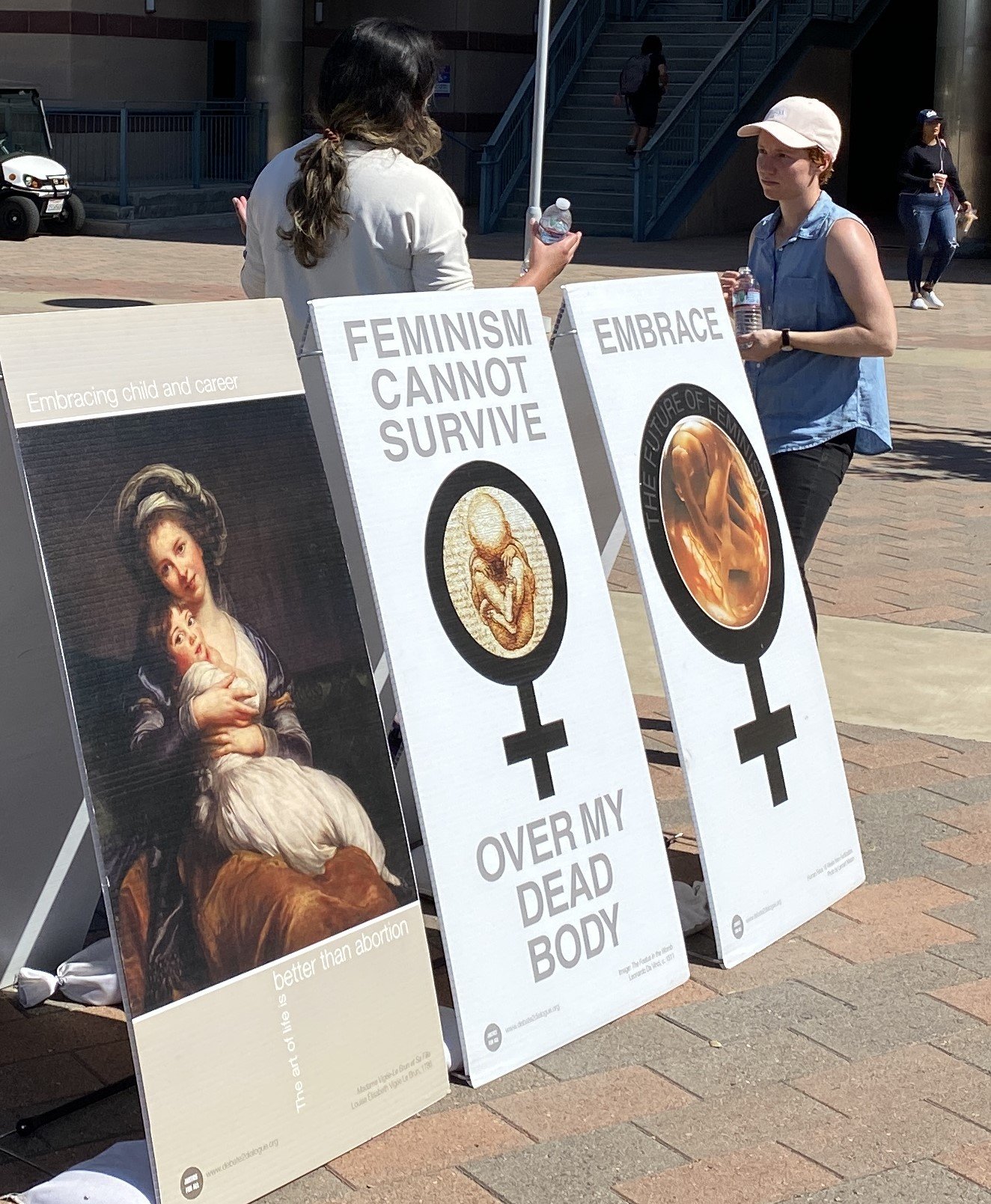The controversial and sometimes personal nature of the abortion issue understandably makes it a topic that many people avoid discussing. Even though Roe v. Wade was overturned in 2022, the number of abortions in the United States has been increasing for the last couple years to around one million annually, according to the latest reports. The need for continued civil engagement with our fellow citizens is paramount.
We rub shoulders every day with people who believe preborn children are different from us and therefore can be killed in the womb. Their deaths are shrugged off as a “woman’s choice” and we are told to believe that abortion is “healthcare.”
One reason the injustice of abortion is incredibly difficult to combat is because we don’t have to physically see the dead bodies of these preborn children in our day-to-day lives. Their deaths are hidden from public view and their dead bodies discarded under the cover of “medical waste.” Whenever we do see images of the aftermath of abortion, we quickly push the images out of our minds or we criticize those who have the boldness to show abortion for what it is. When bad ideas and worldviews are not challenged and corrected vigorously and regularly by people, they lead to humans being dehumanized and killed.
Conversations are an important place where minds begin to change. They are the place where citizens exchange ideas, and those ideas make their way into legislatures. Our world becomes a safer place for the vulnerable when human beings are valued from their conception. For some, starting a conversation about the preborn and abortion may seem terrifying, while for others, maybe it’s not challenging at all. Maybe for others it’s something in the middle. Regardless of where you find yourself in this mix, here are some tips I have learned from my own experiences that can make your conversations productive.
Listen to understand and ask questions for clarification
One of the reasons good conversations about abortion and other controversial issues are rare is because many people don’t take time to carefully listen to others. It is easy to enter discussions in debate mode ready to counter any incorrect idea the other person shares. When both people go in with their defenses up, each person plans what their next response will be instead of trying to understand what the person is saying and why she is saying it. People don’t respond well when it feels like a constant game of who can one-up the other person with a response that will show her how “dumb” or how “wrong” she is.
If we take the time to sit down with someone else, side by side, and hear her story and her reasons for the beliefs she holds, we will have a better chance of making a more persuasive case for our beliefs when that time comes. We shouldn’t merely listen well though just because it can open up better opportunities to change her mind in the future. We should take the time to listen well to others because it shows the other person you see her, that what she is saying matters, and what she experiences matters. It shows her we care about her life.
Asking good questions is also a crucial part of good conversations. Good dialogue will not happen unless you understand where this person is coming from. Asking questions shows we want to understand the other person better and shows we are being attentive and sensitive to important details about her background and beliefs. Here are some of the questions I find really helpful to ask in my own conversations:
What makes this issue important to you?
What do you think about abortion?
Where do you find yourself in the abortion debate?
What do you mean when you say pro-choice or pro-life?
How did you come to be pro-choice or pro-life?
Do you think abortion should be legal for all nine months of pregnancy or only a portion of that time?
How have conversations about abortion gone for you in the past?
Have you always had this view or has it changed for you over time? If it’s changed, how did that change of view happen?
Do you know anyone that has had an abortion?
Find common ground whenever possible
Despite our many differences, human beings have a lot in common. Finding common ground means taking the time to highlight agreement, and it creates a better place to discuss difficult things. Human beings by nature deeply desire community and love. We want to be respected, accepted, listened to, and protected.
When we talk to a pro-choice person, the stakes for her changing her mind are high. She has to come to terms with the fact that she has been supporting the killing of innocent children in the womb. Maybe she has to face the fact that she killed their own child. Or maybe she helped someone else end the life of their child. It’s like she has to slide down a cliff with jagged rocks waiting for her at the bottom. We can help ease her fall and mitigate the pain and injury. We would want someone else to help us down that same cliff as gently as possible, so let’s do that for others by how we communicate with them.
There are a tremendous amount of painful, weighty things people have to work through when faced with the opportunity to change their mind about abortion. Having to acknowledge that you have been wrong about something so important feels crushing for some. Remembering that we all have been mistaken about things in the past will help us humbly and patiently stand alongside another person as they make these shifts in their view.
I recommend reading Common Ground Without Compromise by Stephen Wagner to get practical ideas on how you can find common ground in conversations with those who disagree with you.
Generally use the labels the other side prefers
It’s helpful to use the preferred labels each side uses to describe their view. This might sound more controversial up front. Here’s what I mean. Some pro-lifers in conversation with a pro-choice person insist that she is “pro-abortion” even if the person has just said she is “pro-choice.” When she says she is not “pro-abortion” the pro-life person asks her what choice she is for and when she says something like the “right of a woman to choose abortion,” the pro-life person says she is “pro-abortion.” This rhetorical move is not helpful if your goal is good conversation that can lead to a changed mind. Imagine how it feels for pro-lifers when people insist we are just “pro-birth.” We don’t like it when people reframe our position in a way that sounds foreign to us. People are not going to be as open as they would be otherwise if they feel like they are just being cornered and told by others what their view is.
It’s not because I don’t think labels or ways people describe themselves are important. I agree the words we use to describe ourselves should be accurate, and I can understand the desire to attack the “choice” language since a preborn child’s death shouldn’t be reduced to such a positive-sounding sentiment.
We have so many problems to deal with and so many bad ideas to dismantle in conversations about abortion. I look at it this way: there are primary and secondary issues. The primary issue is that abortion kills a human being, and I want to help people understand that. If that means I have to tolerate or ignore the “choice” language, I am willing to do that. The conversation should be focused on the humanity of the preborn child and how their rights are gravely violated by abortion. If we do this, the labels will fix themselves in the long run.
We have a limited amount of time with the people in front of us, and it is important to use that time in the best way possible. I want them to get a little closer to understanding the violence and evil of abortion. I have found I have a much better chance of doing that when I ignore the inaccurate aspects of their labels and focus on the humanity of preborn children. If I helped the person have a more accurate label but did not help her have a more accurate view of the preborn, I don’t think I used my time very wisely.
Conclusion
Talking about abortion doesn’t have to be as difficult as it may seem. If you use these tips, I’m confident you will have good conversations. Some of my early conversations were not productive because I didn’t use these skills, and I said things I shouldn’t have. While I wish I could go back and do some of those conversations over again, I’m also thankful I didn’t just give up and walk away.
It’s important that we are willing to make mistakes in conversations because the fact that we are making mistakes is a normal part of engaging others in important conversations in the pursuit of justice. Don’t let the fear of bad conversations keep you from saying anything at all. Let those conversations that didn’t go so well in the past propel you to study more, seek advice from mentors, and be willing to try again. The more you do that, the better advocate you will become.
To get trained to utilize these skills in difficult conversations, consider attending a Justice For All pro-life apologetics seminar. If there is no in-person option that works for you, consider taking our online Love3 Workshops.

